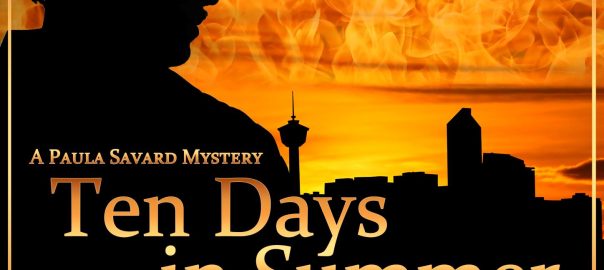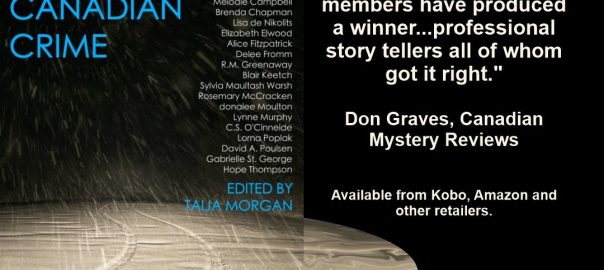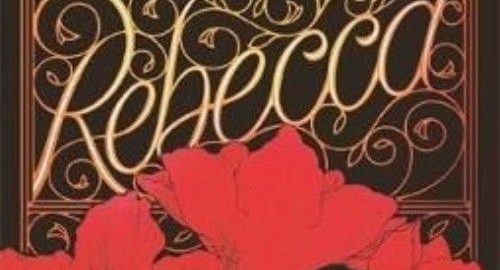I view audiobooks as a wave of the present. Many of my friends like them for multi-tasking. They listen to books while driving, exercising, or cleaning the house. Book-lovers who develop eye problems with age find audiobooks a godsend. So I was thrilled when BWL was awarded funding to produce a group of Accessible Audiobooks and chose my novel, Ten Days in Summer, to be part of the group.
BWL’s next step was to find a suitable narrator for Ten Days in Summer. They selected Janice McNally, an Ontario narrator and producer. Janice has visited Calgary and attended the Stampede, which forms the backdrop for my novel. She produced a fifteen minute sample for us to approve. BWL and I agreed she sounded great and spoke clearly. Then Janice got down to work.
Partway through the process, she contacted BWL with a question about how to pronounce the surname of one of my characters, Cynthia Hawryluk. Janice had looked this up on the internet and found several examples, each with a slightly different pronunciation. I’d taken the name from a doctor I had in Montreal and pronounced it like this: Haw (rhymes with cat’s paw, accent on this syllable) ry (short i sound) luk (luck).
Now I did an internet search and discovered that most websites pronounce Hawryluk similar to this. I don’t know if my doctor anglicized his name or if I pronounced it wrong all these years. I gave Cynthia this surname because Alberta, the novel setting, has many Ukrainian residents and I assumed the name was Ukrainian. The internet advised me that Hawryluk is equally or more often Polish.
The bottom line for me was Cynthia Hawryluk is a secondary character in the novel and her surname is only mentioned a few times. Since I’m not invested in the pronunciation, I advised Janice to go with the common one for readers familiar with the name.
I was impressed with Janice’s and BWL’s attention to this detail. When Janice finished her work, BWL asked me to listen to the whole audiobook to check for errors. I’ve never read any of my novels after they were published and relate to actors who never watch their movies. Ten Days in Summer was released in 2017. Since then, I’ve moved on to three more novels. I cringed at the prospect at looking back at my writing.
At first it felt strange and uncomfortable listening to someone else’s voice telling my story. But less than a chapter in, I got used to it and felt Janice’s voice nailed my Paula narrator. I enjoyed revisiting the story, chuckled at my old jokes, and found minimal errors. Three were different pronunciations for friends’ names in the acknowledgments.
Janice posted her view of the experience from her end.
Listening to my novel five years after its publications gave me a broader view of the story. Themes popped out. I realized Ten Days in Summer might appeal to readers interested in the following:
Whodunnit stories
Psychology and effects of hoarding
The Calgary Stampede – Yahoo!
Social class
Ordinary people who murder
Family relationships
Mothers and daughters
Trust
How human connection eases the pain
Baby boomers
Grown children and aging parents
Finding love and romance in middle age
I’m currently working on the fourth novel in my Paula Savard Mystery series and was thinking it would be the last. But, to my surprise, listening to this earlier series book, Ten Days in Summer, gave me an idea for a new direction for Paula, should she and I choose to take it.
If you’re looking for a Christmas present, here’s a bonus offer from audible.
Happy Holidays and my best wishes for a happy and healthy 2023.










